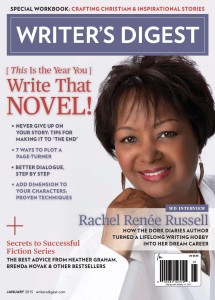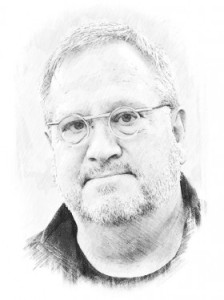 The January 2015 issue of Writer’s Digest Magazine has a wonderful article by my friend Dinty Moore in their Workbook column:
The January 2015 issue of Writer’s Digest Magazine has a wonderful article by my friend Dinty Moore in their Workbook column:
“Spiritual & Christian Writing: Writing the Spiritual Essay.”
It’s not available online, but if you’re a writer, you should subscribe to this magazine, anyway. The article is excerpted from Dinty’s book, Crafting the Personal Essay, which I highly recommend.
 The author of numerous books, including The Mindful Writer: Noble Truths of the Writing Life, Crafting the Personal Essay: A Guide for Writing and Publishing Creative Nonfiction, and the memoir Between Panic & Desire, Dinty also serves as director of Ohio University’s BA, MA, and PhD in Creative Writing program. He is editor of Brevity, an online journal for brief (750 words or less) creative nonfiction essays. All that to say that when he writes a craft essay, we should listen up. Several of my published essays fit into the “spiritual” category—and I’m sure I’ll be writing more—so I’m ready to sit at Dinty’s feet and learn from the master.
The author of numerous books, including The Mindful Writer: Noble Truths of the Writing Life, Crafting the Personal Essay: A Guide for Writing and Publishing Creative Nonfiction, and the memoir Between Panic & Desire, Dinty also serves as director of Ohio University’s BA, MA, and PhD in Creative Writing program. He is editor of Brevity, an online journal for brief (750 words or less) creative nonfiction essays. All that to say that when he writes a craft essay, we should listen up. Several of my published essays fit into the “spiritual” category—and I’m sure I’ll be writing more—so I’m ready to sit at Dinty’s feet and learn from the master.
Dinty makes it clear that spiritual essays aren’t limited to writing about the Christian faith—or even about any religious tradition. The best ones are often those that delve into uncertainty, as did St. Augustine’s Confessions, which Dinty says, “may indeed be the world’s first memoir, and all of these centuries later the book remains powerful and startling.”
Why?
Because Augustine was honest. He didn’t claim that his Christian beliefs were uncomplicated or that he fully understood every difficult aspect of his faith. He went straight to the doubt and contradictions.
I’m thinking of a recent blog post by my friend Karissa Knox Sorrell which fits this definition—“The Advent of Unbelief.”
So, if a spiritual essay doesn’t have to be Christian, or even geared to a specific religions, what makes it spiritual? Dinty says:
What unites the spiritual essay is the quest to explore life’s basic mysteries: Is there a God (or Higher Power, or unexplained force that knits the universe together)? How do we know? What should we do with our doubt or certainty about what this God or power expects of us? If we are to live our beliefs, what is the proper way to act?
Dinty says that those of us who are conflicted about our beliefs are the best people to write a spiritual essay. He emphasizes the importance of not using the essay to attack the beliefs of others, but to explore our own internal conflict by putting it on the page. He gives us three quick tips to consider before we begin:
Start Small
Be Specific
Read Widely
Read the article for a full explanation of each tip! The article ends with a writing exercise to help you get started. As Dinty says, “The goal is to discover your spiritual questions, not mine.”
Susan, thank you for yet another shout out! I love Dinty Moore. I’ve submitted to Brevity before, and my essay wasn’t accepted, but he (or one of the editors) sent me a really nice email about how my piece was in the running right up into the end decisions. I’m going to put some of these book titles on my Amazon Wish list. I love the idea of spiritual writing starting with uncertainty and mystery!